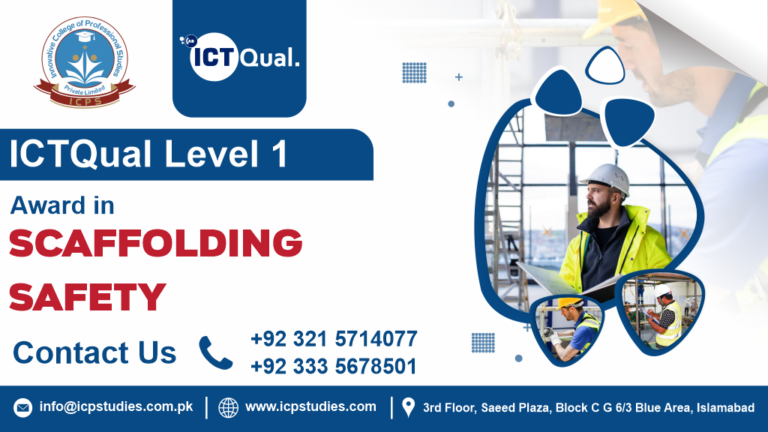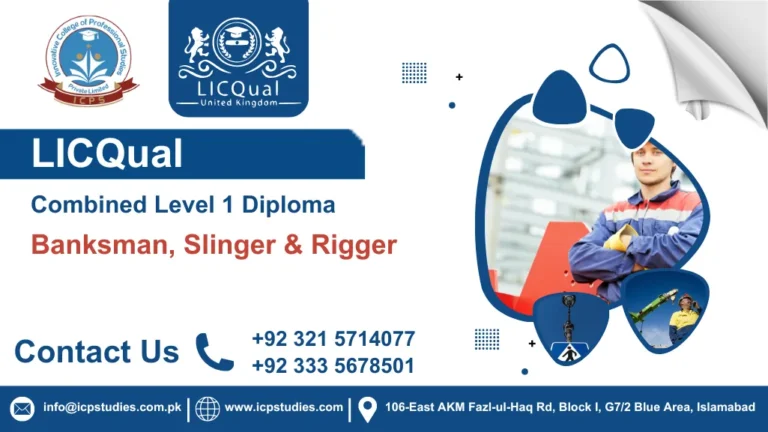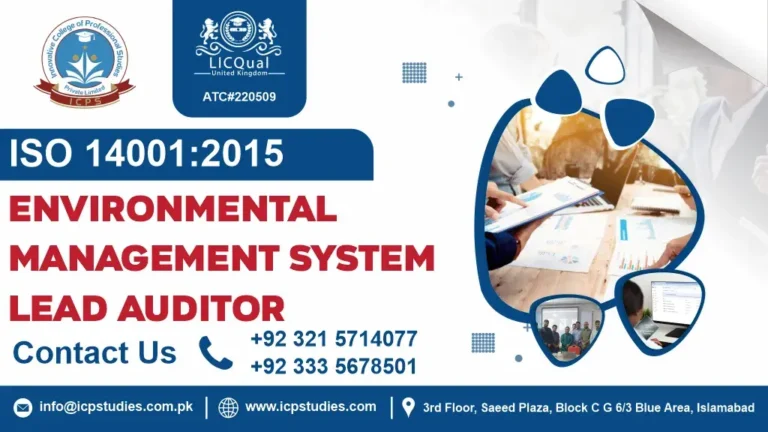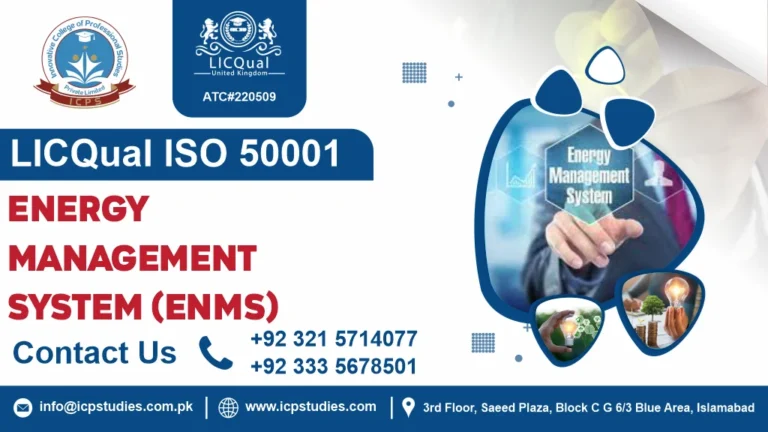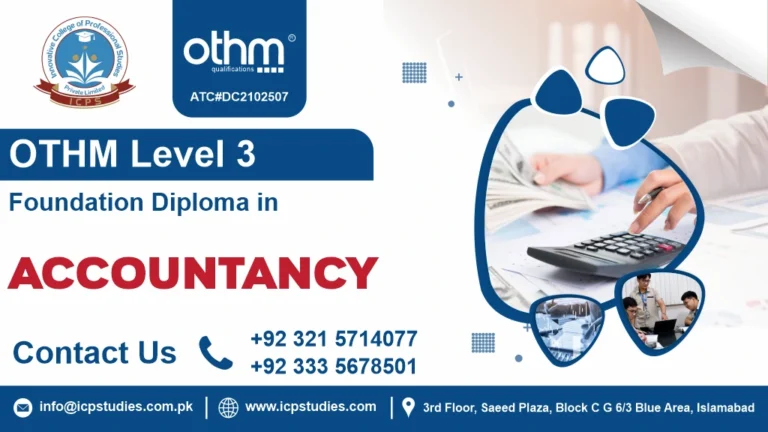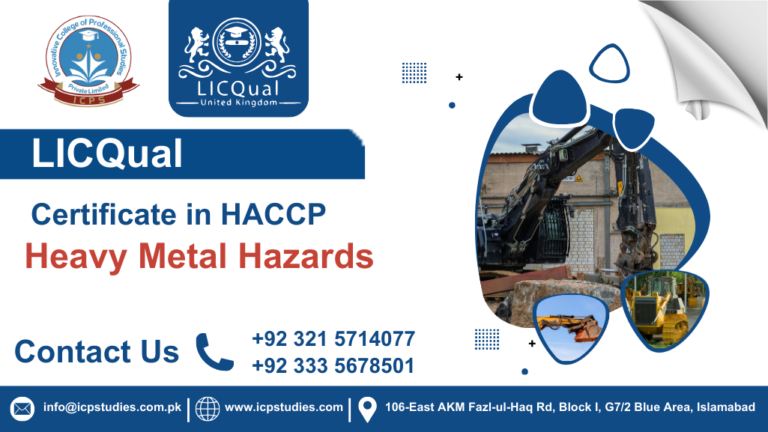In the realm of industry and construction, the importance of safety and efficiency cannot be overstated. The Level 3 Certificate in Management of Lifting Operations stands as a testament to this ethos, offering professionals a comprehensive framework to oversee lifting operations with precision and care.
The curriculum of the Level 3 Certificate encompasses a diverse array of topics, each essential for aspiring managers in the field of lifting operations. Participants delve into the principles of risk management, gaining insights into hazard identification, assessment, and mitigation strategies. Additionally, the certification covers the intricacies of lifting equipment, focusing on selection, maintenance, and inspection protocols to uphold operational integrity.
Level 3 Certificate in Management of Lifting Operations stands as a cornerstone in the realm of safety and efficiency within the industrial landscape. Through its comprehensive curriculum and practical applications, this certification empowers professionals to navigate the complexities of lifting operations with precision and care. As industries continue to evolve, the need for skilled managers adept at ensuring safety and compliance remains paramount, making the Level 3 Certificate a valuable asset for aspiring leaders in the field.
All About Level 3 Certificate in Management of Lifting Operations
Course Overview
The Level 2 Award in Lifting Operations & Lifting Equipment (LOLER) Awareness Training is a structured program designed to provide individuals with the necessary knowledge and skills to understand and implement the requirements of LOLER regulations effectively. LOLER, which stands for the Lifting Operations and Lifting Equipment Regulations, is a set of regulations established in the United Kingdom to ensure the safe use of lifting equipment in various industries.
The Level 2 Award in LOLER Awareness Training typically involves a combination of classroom instruction, practical exercises, and assessments to ensure that participants acquire the necessary knowledge and skills. Upon successful completion of the training program, participants may receive a recognized qualification or certification, demonstrating their competency in LOLER compliance and safe lifting practices.
Level 2 Award in LOLER Awareness Training plays a crucial role in promoting workplace safety, reducing the risk of accidents and injuries, and ensuring compliance with regulatory requirements in industries where lifting operations are common.
Study Units
To enroll in the Level 3 Certificate in Management of Lifting Operations, candidates should meet the following entry requirements:
- Relevant Work Experience: A minimum of one year of experience in lifting operations or a related field is typically required.
- Basic Understanding of Lifting Operations: Familiarity with lifting equipment, techniques, and safety regulations is essential.
- Educational Background: A high school diploma or equivalent is preferred; relevant vocational qualifications may also be accepted.
- Age Requirement: Participants must be at least 18 years old.
- Language Proficiency: Proficiency in the language of instruction is necessary to effectively comprehend course materials.
- Commitment to Safety: A demonstrated interest in managing safe lifting practices and operations.
These requirements ensure that candidates are adequately prepared to engage with the advanced content of the course and apply their knowledge effectively in managing lifting operations.
The Level 3 Certificate in Management of Lifting Operations course is designed for:
- Lifting Supervisors: Individuals responsible for overseeing and coordinating lifting operations on-site.
- Site Managers: Professionals managing construction or industrial projects that involve lifting activities.
- Health and Safety Officers: Staff focused on ensuring compliance with safety regulations related to lifting operations.
- Project Managers: Individuals coordinating projects that require effective management of lifting operations.
- Crane Operators and Riggers: Those looking to enhance their understanding of lifting management principles.
- Training Personnel: Individuals involved in training others on safe lifting practices and management.
This course is ideal for anyone aiming to develop their management skills and knowledge in lifting operations to ensure safety and efficiency in the workplace.
Learning Outcomes
- Lifting Operations Managers: Professionals who are responsible for planning, coordinating, and supervising lifting activities within their organizations. This includes ensuring compliance with safety regulations, managing resources, and overseeing the execution of lifting operations.
- Site Managers and Supervisors: Individuals who oversee construction sites, manufacturing facilities, or other work environments where lifting operations are common. This course equips them with the knowledge and skills needed to manage lifting activities safely and efficiently on-site.
- Health and Safety Professionals: Those working in the field of occupational health and safety who require specialized training in managing lifting operations. This course provides them with a comprehensive understanding of risk assessment, control measures, and legal compliance related to lifting activities.
- Engineers and Technicians: Professionals involved in the design, installation, maintenance, or inspection of lifting equipment and systems. This course helps them develop a deeper understanding of lifting operations management principles and best practices.
- Logistics and Warehouse Managers: Individuals responsible for managing material handling processes, including the use of lifting equipment in warehouses, distribution centers, or transportation operations. This course enables them to ensure the safe and efficient movement of goods through proper lifting techniques and procedures.
- Supervisory Personnel: Team leaders, foremen, or supervisors who oversee workers engaged in lifting operations as part of their job responsibilities. This course provides them with the knowledge and skills needed to lead their teams safely and effectively during lifting activities.
- Anyone Seeking Career Advancement: Individuals looking to enhance their career prospects in industries where lifting operations play a significant role. Obtaining the Level 3 Certificate in Management of Lifting Operations demonstrates their competence and commitment to safety, which can lead to advancement opportunities within their organizations or in the job market.
Overall, this course is suitable for a wide range of professionals who are involved in or have responsibilities related to lifting operations and wish to enhance their knowledge, skills, and career prospects in this field.
FAQs about Level 3 Certificate in Management of Lifting Operations


